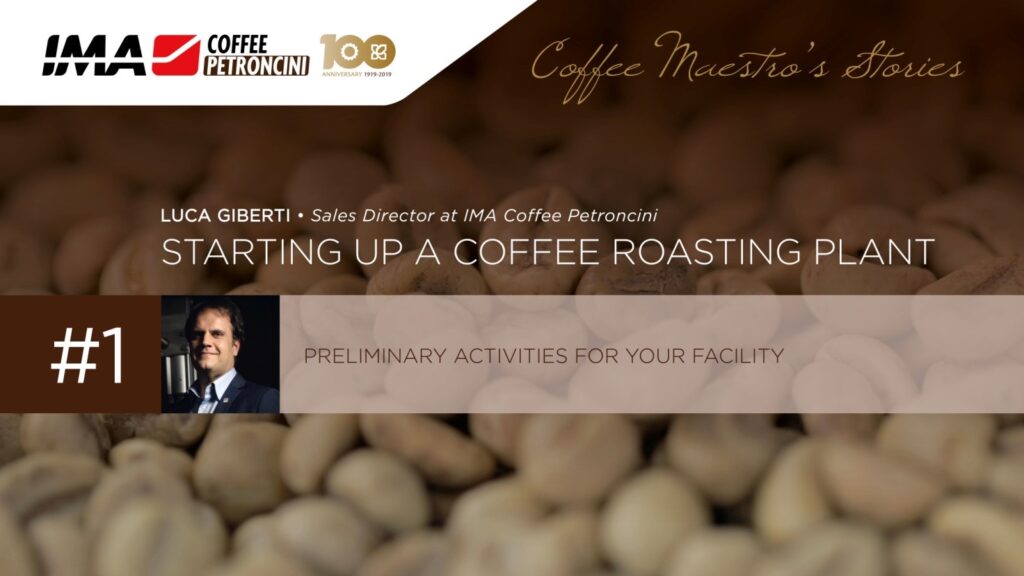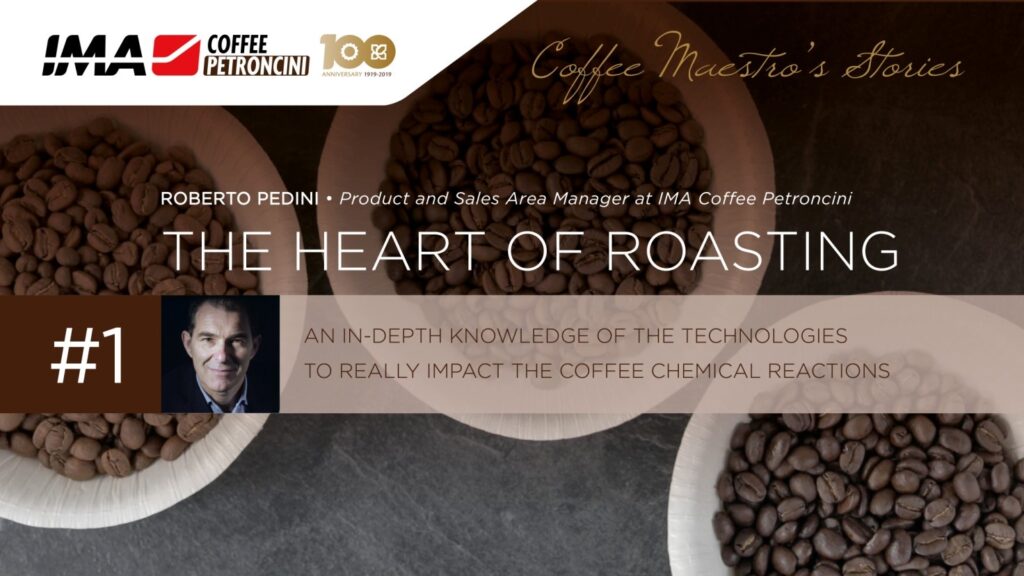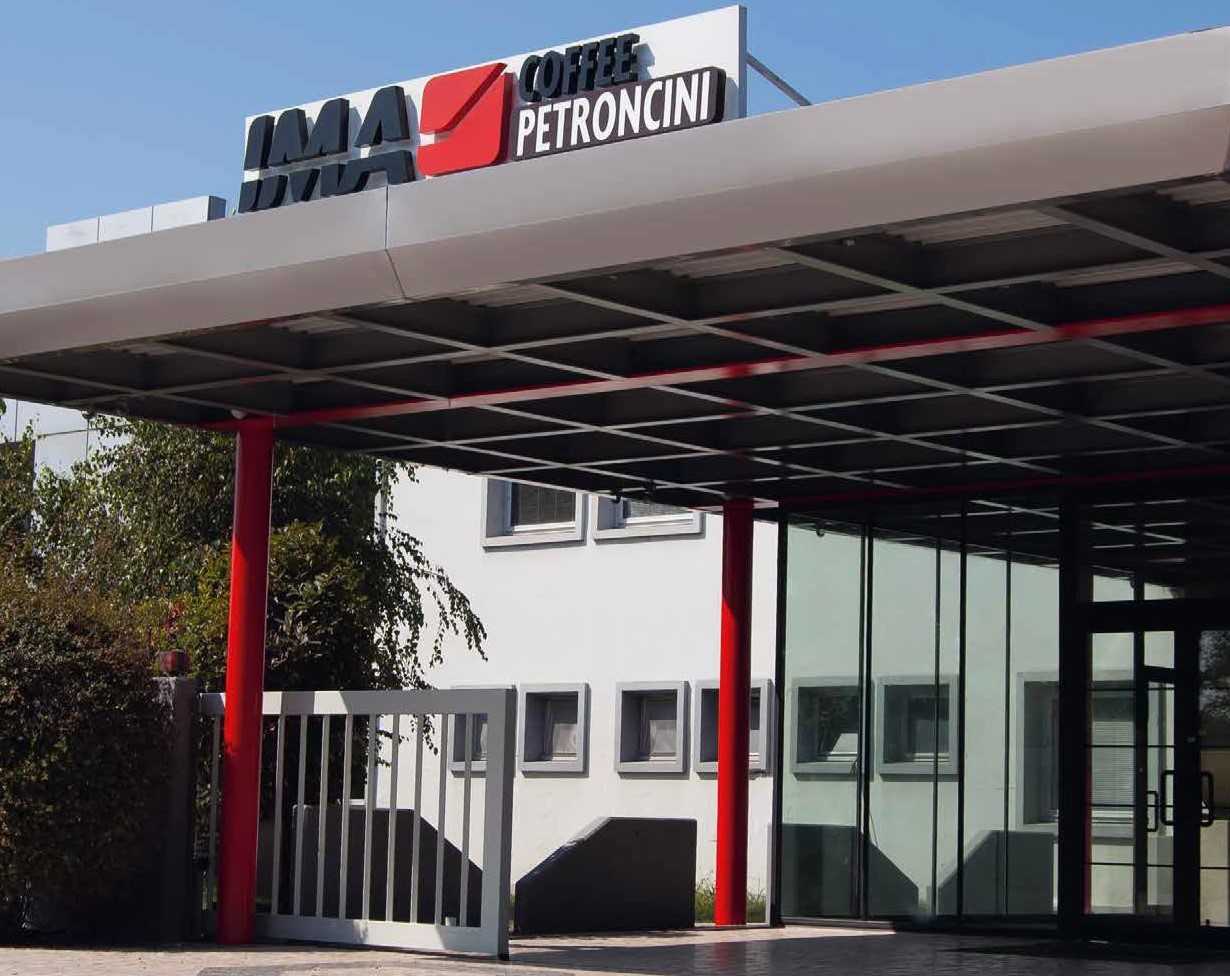SANT’AGOSTINO, Italy – Founded in Bologna in 1919 by Ruggero Petroncini, an artisan with a flair for creativity, Petroncini has grown extensively over the century into a worldwide renowned leading supplier in the coffee processing industry thanks to a talented group of people with a feeling for innovation.
On the occasion of its 100th year of activity in the coffee industry, the company has decided to kick off celebrations in an unconventional way, so that this important milestone is simply the beginning to a new chapter in a history devoted to coffee.
Coffee Maestros Luca Giberti, Roberto Pedini, Alessandro Brambati and the Italian Coffee Expert Andrej Godina are pleased of sharing their in-depth coffee knowledge in a series of webinars called Coffe Maestro’s Stories.
During the 8 episodes, the Coffee Maestros will focus attention on coffee and its treatments, from the green selection and cleaning, up to espresso or brasiliana coffee tasting.
It’s already possible to watch on demand the first two episodes of the Coffee Maestro’s Stories.
Starting up a coffee roasting plant
Part #1 Preliminary activities for your facility
 “Roasting coffee requires a lot of knowledge about coffee and the roasting process, but also a vast range of coffee treatments that come before and after the roasting process itself: from the coffee species and growing regions, to how the roasting, blending, grinding and degassing processes influence the aroma and taste of the cup.
“Roasting coffee requires a lot of knowledge about coffee and the roasting process, but also a vast range of coffee treatments that come before and after the roasting process itself: from the coffee species and growing regions, to how the roasting, blending, grinding and degassing processes influence the aroma and taste of the cup.
An in-depth knowledge of the whole coffee processing and chemical transformations means you can make an accurate evaluation of the kind of product you would like to obtain, following the steps you think are strictly required. Along this journey in the coffee industry, especially in the preliminary phases, the advice of coffee specialists in charge of different areas could significantly improve your project, anticipating any unexpected situations” says Luca Giberti as regards the importance of identifying the key factors of a roasting project to be able to achieve a successful business and facility’s construction planning. During the webinar Giberti some practical advises regarding the provides numerous examples and practical advises of how we can study projects with all the necessary components in addition to the roaster, starting from the type of production desired on a daily, monthly or annual basis.
The Heart of Roasting
Part #1 “An in-depth knowledge of the technologies to really impact the coffee chemical reactions”
 Among the complex argumentation of the roasting process, Pedini focused attention on the importance of the cooling phase:
Among the complex argumentation of the roasting process, Pedini focused attention on the importance of the cooling phase:
“The cooling phase is very important and an active part of the process, as it is the true completion of the roasting. Too often this phase is underestimated, yet it is fundamental to preserve the final quality of the roasted coffee. Effective cooling must quickly stop the thermal inertia caused by gases and by self-burning inside the beans. In this way, the temperature should be reduced as quickly as possible (in around 20″/30″) to at least 150°C, in order to stop the internal reactions that could lead to bitterness and hints of burned taste. It is certainly preferable to use air cooling, as it does not have a negative influence on the quality of roasted coffee, whereas cooling carried out with excessive use of water causes negative effects. This can happen particularly in coffee rich in vegetable oils and organoleptic substances, causing premature oxidation, unpleasant flavours and greatly reducing the shelf-life of the coffee.“
The videos are available on demand subscribing to IMA Connect at the following site: https://ima.it/beverage/webinars


















